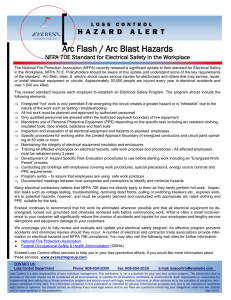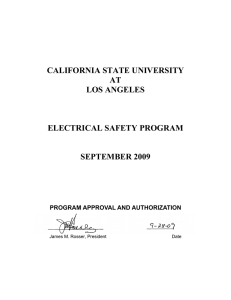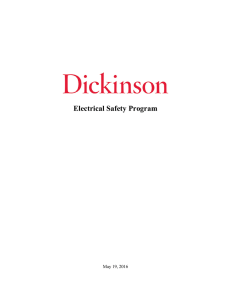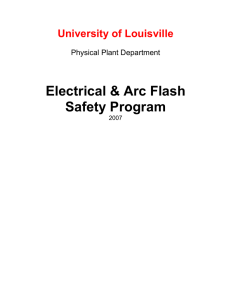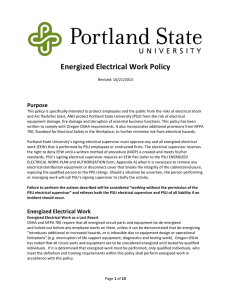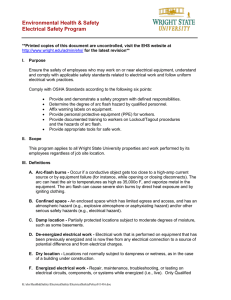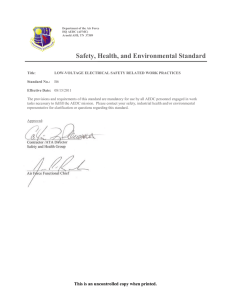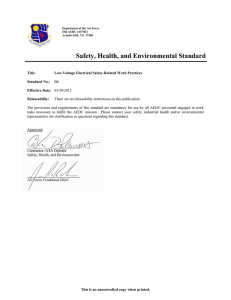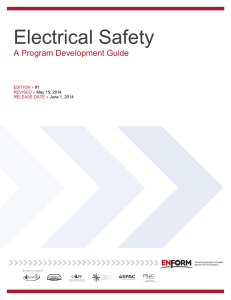Electrical Safe Work Practices (ESWP) Training
advertisement
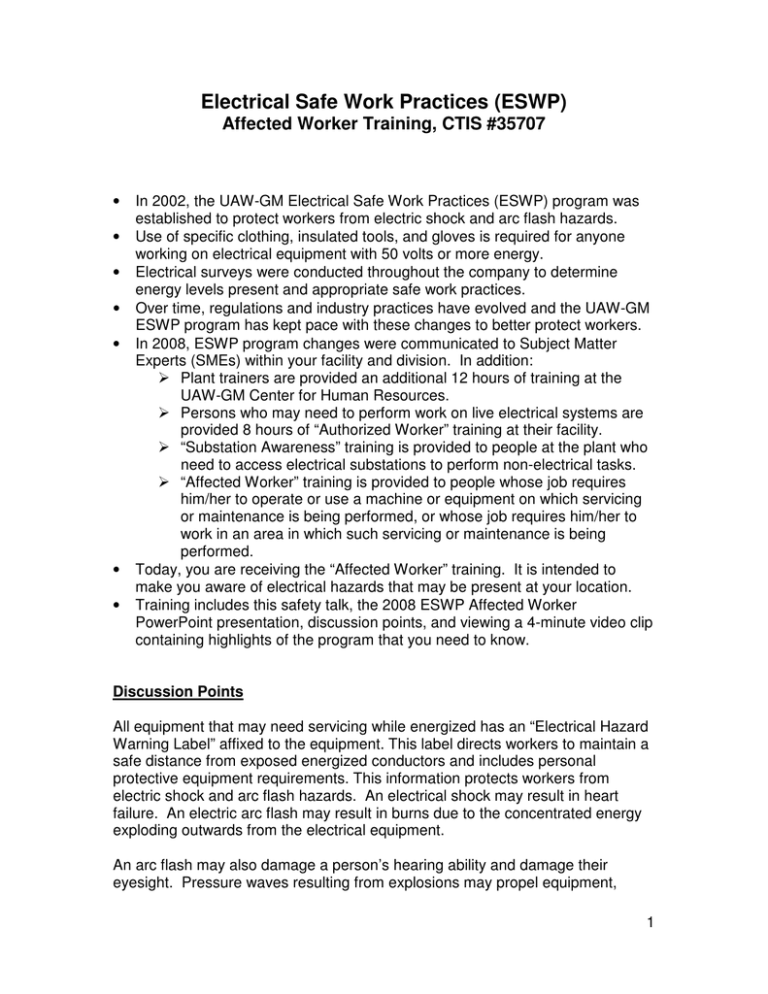
Electrical Safe Work Practices (ESWP) Affected Worker Training, CTIS #35707 • • • • • • • In 2002, the UAW-GM Electrical Safe Work Practices (ESWP) program was established to protect workers from electric shock and arc flash hazards. Use of specific clothing, insulated tools, and gloves is required for anyone working on electrical equipment with 50 volts or more energy. Electrical surveys were conducted throughout the company to determine energy levels present and appropriate safe work practices. Over time, regulations and industry practices have evolved and the UAW-GM ESWP program has kept pace with these changes to better protect workers. In 2008, ESWP program changes were communicated to Subject Matter Experts (SMEs) within your facility and division. In addition: Plant trainers are provided an additional 12 hours of training at the UAW-GM Center for Human Resources. Persons who may need to perform work on live electrical systems are provided 8 hours of “Authorized Worker” training at their facility. “Substation Awareness” training is provided to people at the plant who need to access electrical substations to perform non-electrical tasks. “Affected Worker” training is provided to people whose job requires him/her to operate or use a machine or equipment on which servicing or maintenance is being performed, or whose job requires him/her to work in an area in which such servicing or maintenance is being performed. Today, you are receiving the “Affected Worker” training. It is intended to make you aware of electrical hazards that may be present at your location. Training includes this safety talk, the 2008 ESWP Affected Worker PowerPoint presentation, discussion points, and viewing a 4-minute video clip containing highlights of the program that you need to know. Discussion Points All equipment that may need servicing while energized has an “Electrical Hazard Warning Label” affixed to the equipment. This label directs workers to maintain a safe distance from exposed energized conductors and includes personal protective equipment requirements. This information protects workers from electric shock and arc flash hazards. An electrical shock may result in heart failure. An electric arc flash may result in burns due to the concentrated energy exploding outwards from the electrical equipment. An arc flash may also damage a person’s hearing ability and damage their eyesight. Pressure waves resulting from explosions may propel equipment, 1 tools, and other objects through the air. Our electrical workers have been trained on these hazards. As an affected worker, you may be exposed to these hazards if you are too close to electrical equipment. This is why it’s very important to stay clear of electrical equipment while panel doors are open or when covers are removed. A few simple rules will help keep you safe. • • • Never enter the Limited Approach Boundary without being escorted by a Qualified Person. In no case can you enter the Restricted Approach Boundary. Never enter the Flash Hazard Boundary without proper PPE and remember that this boundary may vary based on energy levels present. APPROACH BOUNDRIES (480V Example) Limited ( 3 ft. 6in.) Flash Hazard Boundary (Varies) Restricted ( 1 ft. ) Prohibited ( 0 ft. 1 in.) Energized Part Must wear appropriate Flash Protection PPE Qualified Persons or Unqualified Persons only if accompanied by Qualified Person Qualified Persons Only with Documented Plan Qualified Persons Only, PPE as if in direct contact with live part • • • • Do not place food or store any objects on or inside electrical equipment. If you see unattended open electrical equipment, contact your supervisor to correct the condition. Do not distract or loiter near electrical equipment where authorized electrical workers are performing work. And keep in mind “Affected Worker” training does not authorize you to perform any electrically-related tasks. 2
